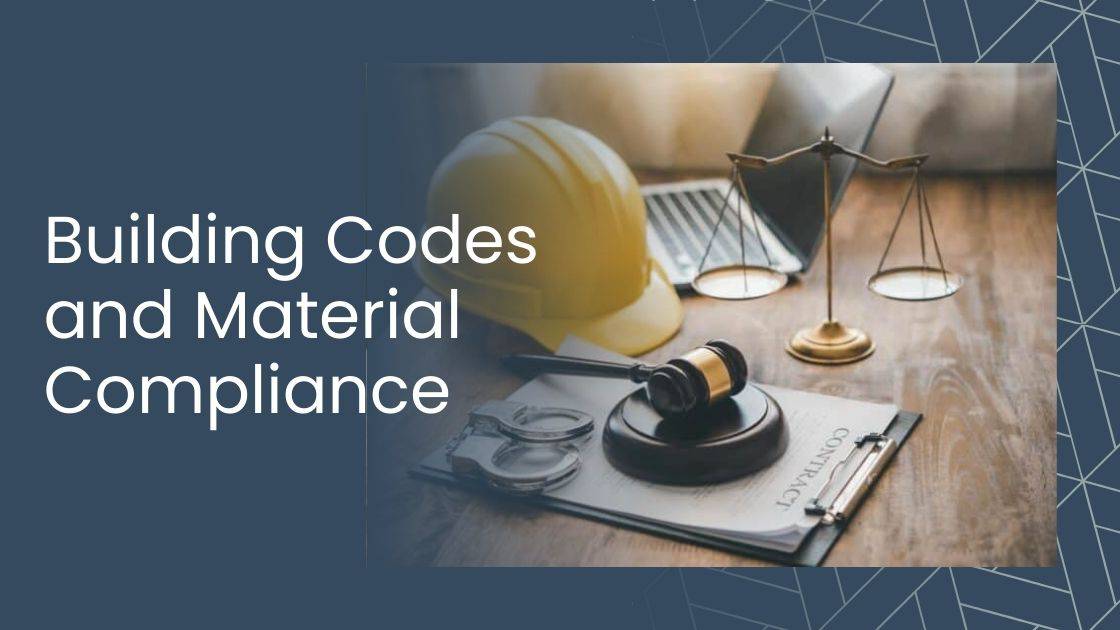
Account

Building codes and material compliance are critical aspects of construction that ensure the safety, durability, and sustainability of structures. Navigating these regulations can be complex, but understanding them is essential for successful project completion. At ibeam Construction Products, we are committed to helping you understand and adhere to these standards. Here’s a comprehensive guide to building codes and material compliance.
Building codes are a set of regulations that specify the standards for constructed objects such as buildings and non-building structures. These codes ensure that buildings are safe, healthy, and sustainable for occupants. They cover various aspects of construction, including structural integrity, fire safety, electrical systems, plumbing, ventilation, and accessibility.
Safety: Building codes are designed to protect the health and safety of occupants. They ensure that structures can withstand various loads, resist fire, and provide safe egress routes in emergencies.
Quality Assurance: Adhering to building codes ensures that construction practices and materials meet minimum standards of quality, reducing the likelihood of defects and failures.
Legal Compliance: Compliance with building codes is a legal requirement in most jurisdictions. Non-compliance can result in fines, legal action, or the need to perform costly retrofits.
Sustainability: Modern building codes often include provisions for energy efficiency, water conservation, and sustainable materials, promoting environmental responsibility.
Material compliance refers to ensuring that the materials used in construction meet the required standards set by building codes and other regulatory bodies. This involves verifying that materials are tested, certified, and suitable for their intended use.
Certification: Many building materials must be certified by recognized testing organizations. Certification ensures that materials have been tested for performance, safety, and durability.
Documentation: Proper documentation, including material safety data sheets (MSDS), product specifications, and compliance certificates, should be maintained for all materials used.
Traceability: Keeping records of material origins, manufacturing processes, and supplier information helps ensure traceability and accountability in case of defects or failures.
Standards and Regulations: Different regions have specific standards and regulations for materials. Familiarize yourself with local codes and ensure that all materials meet these standards.
Research and Education: Stay informed about the latest building codes and material standards relevant to your project. Regularly review updates and changes in regulations.
Choose Reliable Suppliers: Work with reputable suppliers who provide certified and compliant materials. Verify their certifications and track record for quality and reliability.
Conduct Inspections: Regularly inspect materials upon delivery to ensure they meet specified standards. Check for certifications, documentation, and any signs of damage or defects.
Collaborate with Experts: Engage with architects, engineers, and compliance experts to ensure your project meets all regulatory requirements. Their expertise can help navigate complex codes and standards.
Implement Quality Control: Establish robust quality control processes to monitor material compliance throughout the construction process. This includes regular inspections, testing, and documentation.
Understanding building codes and material compliance is crucial for ensuring the safety, quality, and sustainability of construction projects. By adhering to these regulations and standards, you can avoid legal issues, reduce risks, and build structures that stand the test of time.
At ibeam Construction Products, we are committed to providing high-quality, compliant building materials. Contact us today to learn more about our products and how we can support your construction projects in meeting regulatory standards.
Your one stop solution for all your construction needs.
Tailored made solutions for your requirements
Prompt, Precise and Guaranteed timely delivery, every time.
Personalized assistance and expert guidance every step.
ibeam: Your Trusted Partner for Quality Building Materials
Streamline your procurement process with ibeam’s extensive product range, reliable supplier network, and seamless online experience. We deliver unbeatable value, top-tier quality, and on-time delivery—empowering contractors, builders, and traders across the Middle East and African countries.
+971 55 778 3469
Website & Digital Marketing: KVN Promos

